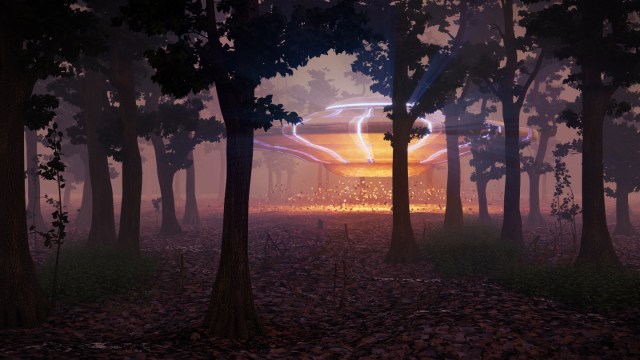Time Might Not Exist Outside of Our Minds, Propose Scientists

Experiencing time is one of the weird parts of our lives. Often, there’s just not enough of it. Other days, there’s way too much time on our hands. And no matter what, it keeps going forward, like an inexorable tugboat, pulling us through emotional experiences and physical transformations. We are left with memories of what has been, unable to change anything, unable to jump forward and see what’ll happen next.
Yet, such a common experience of time may not be what it appears to be. A new paper published in the October issue of the Annalen der Physik, known for publishing Albert Einstein’s theories of special and general relativity, argues that time is not some force outside of us, but rather a phenomenon created by the observer. Basically, you make your own time.
The paper’s co-authors, biologist Robert Lanza and physicist Dimitriy Podolskiy, point out the conundrum that despite how one-directional experiencing time feels to us, most physicists think that time should work the same way forward and backward. Unraveling this mystery leads us down the rabbit hole into the contradictions between general relativity and quantum mechanics.
One popular view in the physics community is that time itself is the product a quantum gravity-related “decoherence” or “wave function collapse“. This process is described through the Wheeler-DeWhitt equation, which is what Lanza and Podolskiy tested in their research and found that the gravity’s effects are too slow to explain the emergence of the “arrow of time“. Instead, the researchers proposed that time’s creation is dependent on the observer.
”In his papers on relativity, Einstein showed that time was relative to the observer,” says Lanza. “Our paper takes this one step further, arguing that the observer actually creates it.”
Lanza sees the experience of time linked to the ability of the observer to create memories, writing that “the emergence of the arrow of time is related to the ability of observers to preserve information about experienced events.”
Thus, the process of aging is related to our ability (or perhaps disability) to remember. A “brainless” observer, for example, would be able to not experience time or aging.
In an email exchange about his theory, Robert Lanza related this story about Einstein, who said after the death of his friend:
“Now Besso has departed from this strange world a little ahead of me. That means nothing. People like us, who believe in physics, know that the distinction between past, present and future is only a stubbornly persistent illusion.”
Robert Lanza is the head of Astellas Global Regenerative Medicine, and a professor at Wake Forest. He is also the founder of “BioCentrism,” a biology-centric view of the world that asserts the pivotal role of consciousness in creating reality, with space and time being “not absolute realities but rather tools of the human and animal mind“. Podolskiy is a theoretical physicist working on aging at Harvard.
You can read the paper online here.
Here’s more about Lanza’s BioCentrism Theory:
COVER PHOTO:
An employee of the Bodet Company carries a clock on March 26, 2014 at the plant of Trementines, western France. (Photo credit: JEAN-SEBASTIEN EVRARD/AFP/Getty Images)





